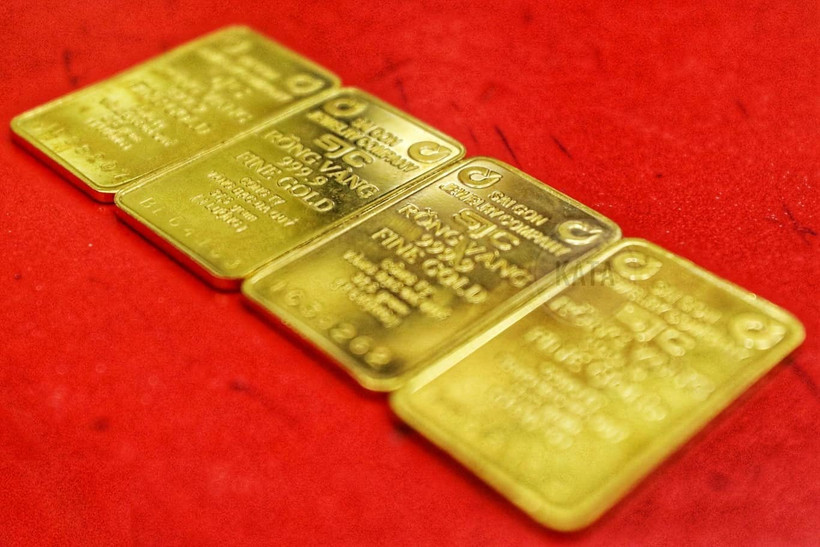HCMC – Starting today, October 10, qualified banks and enterprises are officially allowed to produce gold bars, marking a significant policy shift aimed at stabilizing domestic gold prices and ensuring a transparent supply.
Government Decree 232/2025/ND-CP, which revises Decree 24/2012/ND-CP on gold trading management, took effect on October 10. Under the new regulation, the State Bank of Vietnam (SBV) no longer holds the exclusive right to produce gold bars, a privilege maintained for more than a decade, as this right is now extended to banks and companies that meet the required conditions.
To be eligible, businesses must hold a gold trading license and meet the minimum capital requirement of VND1 trillion, while banks must have charter capital of at least VND50 trillion.
The SBV said it would issue a guiding circular the same day, detailing the quota for importing and exporting gold bars and gold materials for licensed entities. According to the draft circular, banks and enterprises will have to register their annual import-export quotas by November 15, and the SBV will review and approve them before December 15.
The removal of the monopoly is expected to foster competition, improve transparency, and bring greater stability to Vietnam’s gold market.
In addition, Decree 232 introduces stricter requirements for gold trading. From October 10, all gold-related transactions worth VND20 million or more per day with a single customer, including gold bars, rings, and jewelry, must be settled via bank transfer.
Gold trading enterprises must publicly list their buying and selling prices, store customer information (including ID code and tax code), and connect their transaction data systems with the SBV for monitoring.









